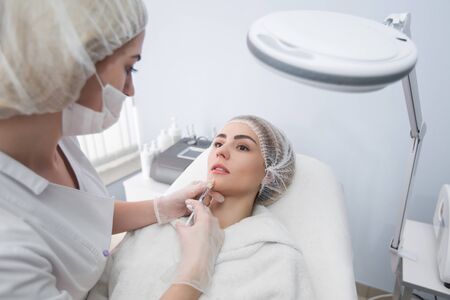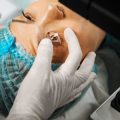Introduction: Cosmetic Enhancements in Modern Britain
In recent years, cosmetic enhancements have become an increasingly visible part of daily life across the United Kingdom. From subtle treatments like Botox and dermal fillers to more involved surgical procedures, the British public is now more open than ever about their pursuit of aesthetic changes. Social media influencers, reality television personalities, and even neighbours down the road are opting for cosmetic tweaks, making these procedures a familiar topic in everyday conversation. However, as popularity rises, so too does the debate around when it is appropriate to begin such treatments. Is there a right age for cosmetic enhancements, or does the answer vary depending on personal circumstances and cultural context? This article delves into the British perspective, exploring whether there is any real consensus on age suitability for these interventions.
2. Social Attitudes Towards Cosmetic Procedures
In Britain, the conversation around cosmetic enhancements is often shaped by a unique blend of tradition, subtlety, and a preference for understatement. Unlike some cultures where aesthetic interventions are openly celebrated or even flaunted, the British approach tends to favour discretion and an unspoken code of modesty. This attitude is deeply rooted in the nation’s history and is encapsulated by the well-known concept of the ‘stiff upper lip’—the idea that one should maintain composure and not draw unnecessary attention to personal matters, especially those perceived as vanity-driven.
Cosmetic procedures in the UK are often viewed through this lens of restraint. Many Britons who choose to undergo enhancements prefer results that are natural-looking and barely noticeable rather than dramatic transformations. There is a prevailing sense that such decisions should remain private, discussed only within close circles or not at all. In public discourse, overt displays of cosmetic work can sometimes be met with criticism or suspicion, further reinforcing the value placed on subtlety.
To illustrate these attitudes more clearly, consider the following table summarising key themes in British social perspectives on cosmetic enhancements:
Theme |
Description |
|---|---|
Subtlety |
Preference for enhancements that do not drastically alter appearance; “less is more” is a common mantra. |
Discretion |
Cosmetic procedures are often kept private; open discussion is generally avoided outside of trusted circles. |
Stiff Upper Lip |
Resilience and emotional reserve are highly valued; overt concern with appearance may be seen as frivolous or self-indulgent. |
Scepticism |
A degree of suspicion exists towards those perceived as having had too much work done or seeking attention through appearance. |
This cultural context profoundly influences not just individual choices but also the broader public dialogue surrounding cosmetic enhancements in Britain. It explains why questions about the ‘right age’ for such procedures are often approached with caution and why many prefer subtle adjustments over conspicuous change.

3. Legal Landscape and Age Restrictions
When it comes to cosmetic enhancements in the UK, the legal framework is both clear and reflective of wider societal values. In recent years, there has been a tightening of regulations to protect younger individuals from premature exposure to aesthetic procedures. Notably, as of October 2021, it became illegal for anyone under the age of 18 to receive cosmetic treatments such as Botox or dermal fillers for purely aesthetic purposes. This legislation extends beyond just medical professionals; beauty salons and non-medical practitioners are also bound by these rules, highlighting the governments commitment to safeguarding young people from potential physical and psychological harm.
This legal stance mirrors broader public concerns about body image pressures and mental health, particularly among teenagers. The move was largely driven by growing evidence that early cosmetic intervention can have lasting impacts on self-esteem and personal development. By enshrining these age restrictions into law, policymakers aim to create a buffer period during which young people can mature emotionally and physically before making potentially life-altering decisions about their appearance. The British approach thus balances personal autonomy with a duty of care, reflecting societys collective responsibility towards its youth.
4. Health and Psychological Considerations
When considering the right age for cosmetic enhancements in the UK, it is crucial to examine both health and psychological factors, as guided by British health bodies such as the NHS and the General Medical Council (GMC). These organisations emphasise that age alone is not the sole determinant of suitability; rather, both mental and physical maturity play essential roles.
The NHS provides clear guidance stating that cosmetic procedures are generally not recommended for individuals under 18, unless there is a compelling medical reason. This policy is rooted in concerns about ongoing physical development during adolescence and the potential impact of body image issues. The British Association of Aesthetic Plastic Surgeons (BAAPS) also highlights the importance of emotional readiness, noting that younger individuals may be more susceptible to unrealistic expectations or peer pressure.
Medical Guidance on Age: Key Points
| Organisation | Recommended Minimum Age | Key Considerations |
|---|---|---|
| NHS | 18+ | Physical development, psychological readiness, informed consent |
| GMC | Case-by-case | Mental capacity, absence of coercion, understanding of risks |
| BAAPS | 18+ (usually) | Maturity, realistic expectations, support systems |
Mental and Physical Maturity: Why It Matters
The British medical community stresses that emotional stability and self-awareness are just as important as chronological age. Adolescents and young adults are often still forming their sense of identity and may be more vulnerable to social pressures. As such, robust psychological assessments are encouraged before proceeding with any cosmetic intervention.
Summary of Key Factors
- Physical Maturity: Ensures the body has fully developed, minimising surgical risks and optimising results.
- Mental Maturity: Involves understanding motivations, setting realistic expectations, and ensuring voluntary decision-making.
- Support Systems: Access to family or professional support can aid decision-making and post-procedure adjustment.
The consensus among British health authorities is clear: while there is no universally perfect age for cosmetic enhancements, careful consideration of individual maturity—both physical and psychological—is paramount in making responsible choices.
5. Media, Celebrity Culture, and Public Influence
In Britain, the role of media and celebrity culture in shaping attitudes towards cosmetic enhancements cannot be underestimated. British tabloids, television programmes, and social media platforms frequently spotlight celebrities who have undergone aesthetic procedures—sometimes with praise, other times with criticism. These narratives contribute to a broader public conversation about what is considered normal or acceptable when it comes to enhancing ones appearance. British celebrities like Amanda Holden or Simon Cowell have openly discussed their own experiences with cosmetic treatments, often igniting debates about age-appropriateness and authenticity. Reality TV shows such as “Love Island” have also played a significant part in normalising procedures among younger audiences, fuelling both curiosity and concern among viewers and parents alike.
Social trends further amplify this influence. The rise of tweakments—subtle, non-surgical enhancements—has been widely covered in the British press, making these interventions seem more accessible and less taboo. At the same time, high-profile campaigns championing natural beauty and self-acceptance counterbalance these messages, reflecting Britains complex relationship with cosmetic enhancement. Ultimately, media coverage and celebrity endorsements shape public perceptions of the right age, encouraging some individuals to consider treatments earlier while prompting others to wait until they feel it aligns with their own values and life stage.
6. Individual Choice versus Social Responsibility
The question of whether there is a ‘right age’ for cosmetic enhancements in Britain is inseparable from the broader debate about individual autonomy and social responsibility. On one hand, the British ethos typically values personal freedom and the right to make decisions about ones own body. This principle supports the notion that adults—regardless of their age—should be able to pursue cosmetic procedures if they so choose. However, this autonomy becomes ethically complex when considering younger individuals or those who may be especially vulnerable to societal pressures. Practitioners in the UK face professional and moral obligations: not only must they adhere to regulatory guidelines set by bodies such as the General Medical Council, but they are also expected to assess the motivations and maturity of prospective clients. Families, too, often find themselves acting as gatekeepers or support systems, particularly for younger people contemplating enhancements. The tension arises when balancing respect for an individuals wishes with the duty to ensure decisions are well-informed and genuinely autonomous, rather than influenced by fleeting trends or external pressures. In British society, this balance is a matter of ongoing discussion: should regulations be more restrictive to protect vulnerable groups, or should emphasis remain on education and informed consent? Ultimately, navigating this landscape requires open dialogue between practitioners, families, and individuals—recognising that ethical decisions about cosmetic enhancements are rarely clear-cut and often require careful consideration of both personal freedoms and wider social responsibilities.
7. Conclusion: A Nuanced Perspective
The question of whether there is a right age for cosmetic enhancements in the UK does not yield a simple answer. British attitudes towards aesthetics are shaped by a blend of cultural values, social expectations, and personal circumstances. Throughout this discussion, it has become clear that what may be deemed appropriate or desirable at one stage of life might not hold true for another, and the influence of family, media, and legislation all play significant roles. While age serves as a reference point in medical guidelines and legal frameworks, it is only one element within a much broader context. Ultimately, the decision to pursue cosmetic enhancements should be informed by individual needs, motivations, and an honest assessment of risks—ideally with professional guidance tailored to each unique situation. In the British context, where subtlety and discretion often guide choices around appearance, finding the right age becomes less about numbers and more about timing, readiness, and self-understanding. Therefore, embracing this complexity can empower individuals to make choices that respect both their personal aspirations and the nuanced fabric of British society.

